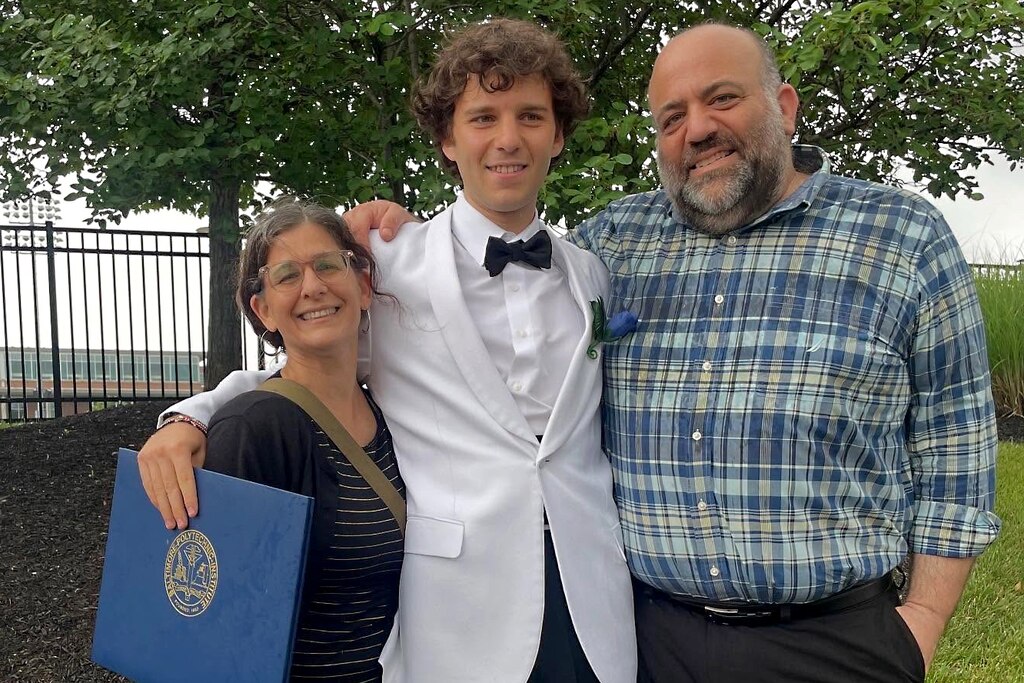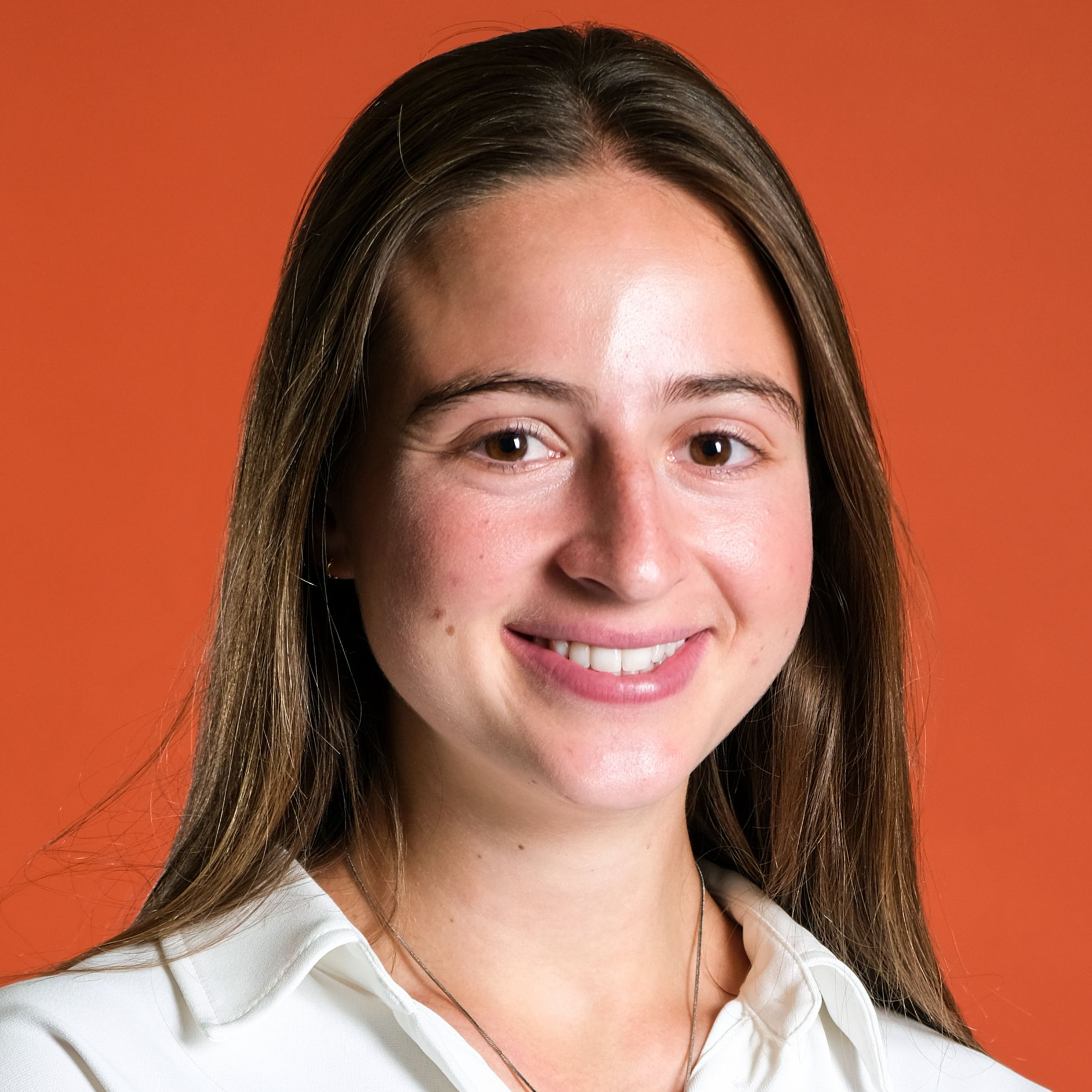Dozens of Jewish parents, students and teachers in Baltimore City Public Schools are pushing back against allegations of pervasive antisemitism in city schools that they say could have a chilling effect on free speech.
In an Aug. 12 letter to the Anti-Defamation League, the parties seek to call attention to their own experiences as Jewish families in city schools. They did not challenge the specific incidents alleged in the ADL’s federal civil rights complaint, which was filed on behalf of Jewish students in the school system.
The U.S. Department of Education’s Office for Civil Rights responded to the complaint by opening an investigation into alleged antisemitism in the city school system.
Joshua Auerbach, a city schools parent who first organized the letter campaign, said he’s watched as the Trump administration has withheld hundreds of millions of dollars in research funding over alleged failures to protect Jewish students at universities, then pressed the schools to adopt remedies that in some cases have led to overhauls of campus protest policies, security practices and Middle Eastern studies.
He and some others who co-signed the letter thought that if they did not speak up, city schools might suffer the same fate.
“We don’t want to see threats to withholding federal funding that may lead to harmful intrusions into the policies of the school system that curtail the right to freedom of speech and inquiry,” Auerbach said.
While federal funds don’t represent a significant portion of the school budget, they do go toward supporting school lunches and special education programs, among other services.
The ADL complaint cites the examples of four families in accusing the school system of knowingly permitting hostile environments where Jewish students “face egregious and persistent discrimination and harassment by teachers in classrooms and by other students.”
According to the complaint, a Jewish student was subjected to Nazi salutes and a history teacher using the phrase, “I’m about to go all Nazi on you,” when trying to interrupt misbehavior in class. The school’s administration did not take any active steps to end the harassment, the ADL alleges.
Other students were subjected to classmates making hateful statements such as, “All Jews should die,” “We should call Hamas and have them come here,” and “6 million Jews were not enough.” According to the ADL’s complaint, the bullying continued even after school administrators became involved.
Read More
City schools officials said in a statement to The Banner that they “unequivocally reject antisemitism and hate in any form.”
When contacted by The Banner, the ADL said it would comment on the community letter, but has not responded to multiple requests for comment since.
Lawyers for the ADL on Tuesday will be meeting with some of the people who signed the letter, said Evan Serpick whose sons grew up in city schools.
Howard Libit, executive director of the Baltimore Jewish Council, said he was surprised to see the ADL file a complaint with the U.S. Department of Education without first talking with local Jewish advocates. He said that he has worked with the city schools system to address antisemitism in the past.
Serpick said he knows those involved in the ADL’s civil rights complaint and is “not trying to minimize the experiences of these families.”
While he does believe Baltimore schools have work to do to address bullying and discrimination, he said that “when it got to the point of describing a broad system-wide antisemitism problem, my eyes widened.”
“That was not our experience at all,” he said.

He said that his son founded a Jewish student union at Baltimore Polytechnic Institute, which is named in the ADL complaint. His wife, Brenda, is a city school system teacher.
Serpick said the student group has avoided organizing events related to Israel because it does not want anyone to feel unwelcome for having a differing viewpoint, adding that it is “more interested in bringing students together than creating tension and division.”
Many signers of the letter are members of the congregation at Beth Am Synagogue in Baltimore, and are a part of the organization Jews United for Justice, a regional group that organizes and educates local Jewish communities to advance economic, racial and social justice.
Among the letter’s co-signers, there is a clear range of opinions on Israel and the Palestinians, Serpick said.
Instances of antisemitism and Islamophobia in the United States have increased drastically since Oct. 7, 2023, when a Hamas-led attack into southern Israel killed about 1,200 people and resulted in an additional 250 being taken hostage.
Israel responded with intense airstrikes and a ground offensive in Gaza that health authorities there say has left more than 62,000 Palestinians dead and the region sliding into famine, according to the Associated Press.
The Baltimore School for the Arts was named in the ADL’s civil rights complaint as having failed to address Nazi gestures and symbols directed toward Jewish students.
While he is appalled by the alleged incidents, Micah Berger-Sollod, a rising senior at the school, said “the notion that there is an atmosphere of threat or of fear surrounding being openly Jewish is not based on reality.”
He believes that the ADL’s complaint assumes that criticism of Israel would automatically make all Jewish students feel uncomfortable.
“That is a dangerous assumption,” Berger-Sollod said.
The school’s Jewish Student Group hosted a latke-making contest in celebration of Hanukkah, built a sukkah for the Jewish festival of Sukkoth, and its members speak openly about sharing celebrations of the high holidays. It has hosted Holocaust survivors for schoolwide assemblies, he said.
Jodie Zisow-McClean, a Spanish teacher at Montebello Elementary/Middle School and a parent of city schools students, said she chose to sign the letter because “to me, struggles for justice are connected. Reading the letter, I know for a fact that antisemitism is a real problem in schools, but so is Islamophobia, transphobia, anti-Black racism, and xenophobia.”
Zisow-McClean, who said she was raised in Pikesville and had grandparents who survived the Holocaust, believes that the city schools system has room for improvement in responding to and remedying instances of bullying and harassment, not just those related to anti-Jewish hate.
For the letter’s co-signers, an unresolved question underlies the debate over antisemitism in the schools: how to discuss Israel and its war with Hamas in Gaza, while keeping Jewish and Islamic students safe?
They expressed concern about the ADL’s insistence on the use of the International Holocaust Remembrance Alliance’s working definition of antisemitism in the city schools’ anti-discrimination policies, which in part deems criticisms of Israel to be acts of antisemitism.
“If Israel is immune to criticism, you are not combating antisemitism but are creating conditions for it to grow when you are asking people not to trust their lying eyes,” said Benjamin Sax, a Baltimore schools parent who signed the letter.
Sax, who works as the head of scholarship at the Institute for Islamic, Christian and Jewish Studies in Baltimore, said context and empathy are important when navigating conversations about Israel and the Palestinians in K-12 environments. He believes that a person’s personal experience with the symbols of both cultures can help them understand how the other side is experiencing those symbols. That understanding, Sax believes, is what may guide people.
Clarification: This story has been updated to add that Brenda Serpick is a city school system teacher.




Comments
Welcome to The Banner's subscriber-only commenting community. Please review our community guidelines.